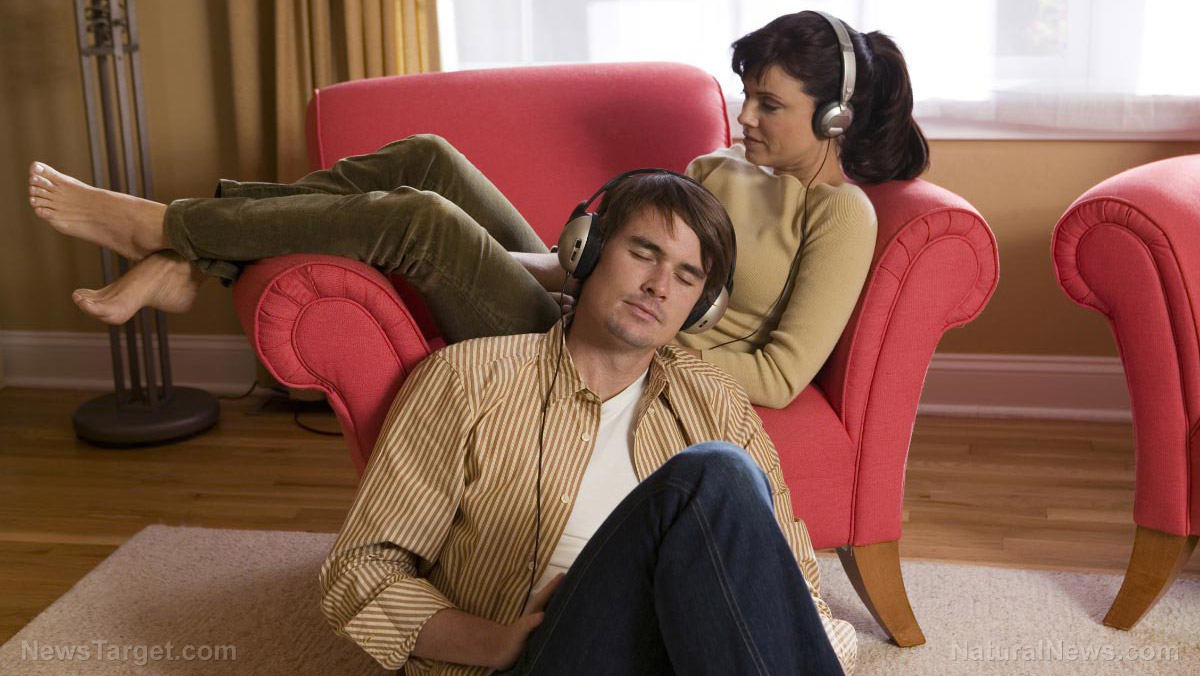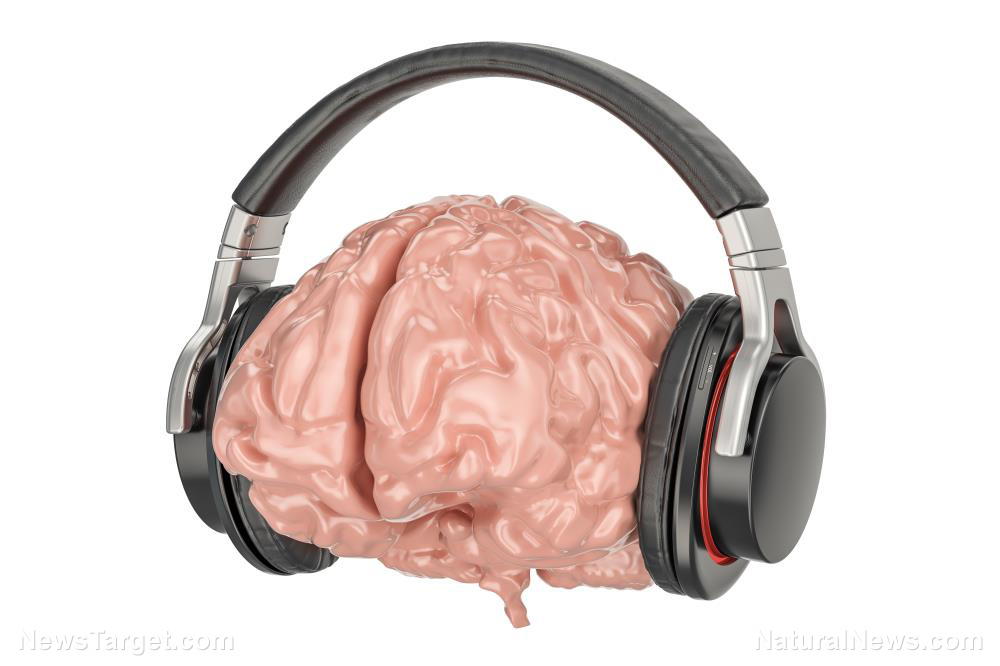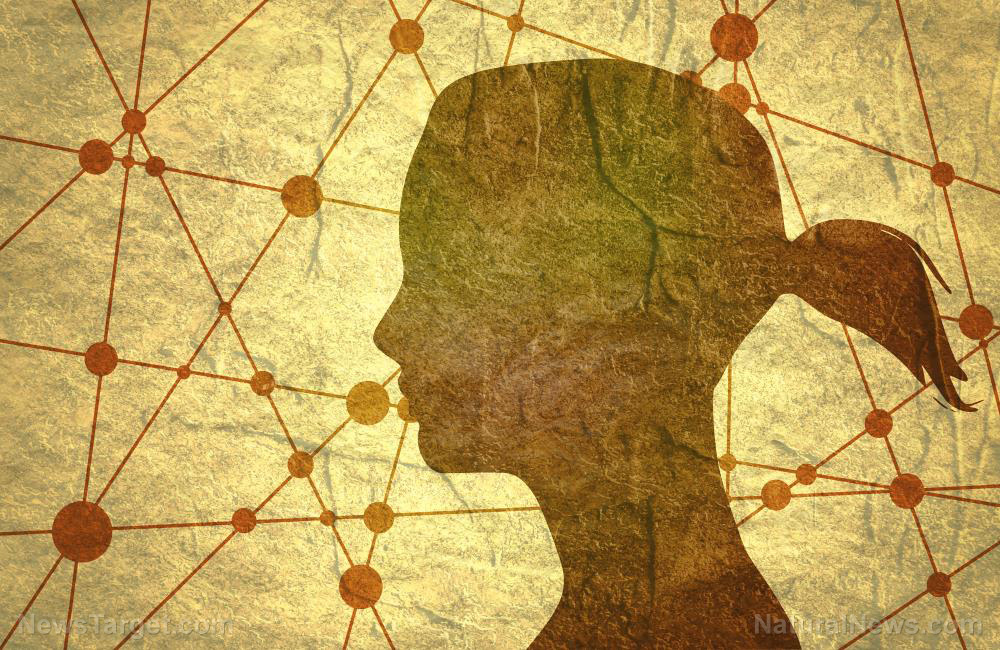It’s okay to feel blue: The 6 benefits of listening to sad music
11/26/2019 / By Grace Olson

Sadness is a universal feeling, experienced by humans and animals alike. It is linked to a negative experience, wherein a person has a perceived loss – and the more valuable it is, the more intense the sadness can be.
However, while most people go out of their way to avoid feeling sad, others actually enjoy listening to sad music. This is often called the “paradox of sad music.” Several studies have examined this phenomenon to gain a deeper understanding of the benefits of listening to sad music.
The paradox of sad music
Several theories clash on whether the feelings derived from sad music are real or simulated, positive or negative, or any combination thereof. There are also conflicts as to which level it operates on – cognitive, cultural, etc. Music is so deeply rooted into the human psyche and society that there are too many variables to consider for study.
One particular study published in the Frontiers on Human Neuroscience proposed that listening to sad music helped correct homeostatic imbalance in the brain. Homeostasis refers to maintaining the balance of all bodily functions, which ensures an organism’s overall well-being. Researchers suggest that a sad experience may cause an imbalance, and listening to sad music may help correct it.
Another study published in the Physics on Life Reviews had a different take on the matter. The researchers examined the biological, psycho-social, and cultural factors that may contribute to the pleasurable effects of listening to sad music. After reviewing previous research and data from neuroimaging tools, they compiled the following information:
- Biological level – Sad music induced homeostasis and the production of prolactin, a hormone that offers emotional relief.
- Psycho-social level – It helped a person process his/her emotions through sharing emotions and social surrogacy (substitute for human interaction).
- Cultural level – The pleasure gained from sad music was dependent on the culture, and it could have different meanings in various cultures.
These are just some of the studies that have explored the effects of listening to sad music. Researchers from both studies admitted the need for further studies in order to draw conclusive data. A deeper understanding of how sad music works can help improve the techniques that employ music in therapeutic procedures. (Related: Music therapy helps reduce depression and increases self-esteem.)
Benefits of listening to sad music
Exploring the paradox of sad music offers a better insight into how it works. While research cannot determine exactly how, the benefits of listening to sad music can readily be seen in real life. Here are some of its benefits:
1. Regulates mood
This is one of the effects of sad music on a psycho-social level. It helps disengage from a stressful situation and focus on the music instead. Moreover, a song’s lyrics may connect with the listener’s experience. In this manner, the music helps the listener by giving voice to the emotions the listener cannot express.
2. Induces nostalgia
Sad music is a powerful trigger for memories, especially important ones. Some theories on music suggest that sad music evokes memories of the experiences related to that feeling. As Paul Hindemith, the author of A Composer’s World, wrote, it is a “tour guide of past emotions.”
There are songs that remind a person of a particular point in time. The resulting effect is nostalgia – feeling a sense of happiness in reminiscing bygone times.
3. Substitutes emotions
A common thread between theories on sad music is that the stimulus (the sad experience) is not an immediate threat to a person. It sets a distance between the listener and the sad experience.
According to some theories, sad music helps simulate sadness in the listener. This offers a chance for the person to experience negative emotions while being disconnected from any real negative scenario. Consequently, this sets an opportunity for the person to ruminate on his/her internal griefs.
4. Curbs grief
In ancient Greece, Aristotle theorized that tragic theater plays helped the audience purge their emotions. This process is called catharsis. The same thing is said to apply to listening to sad music.
Modern research has provided a biological basis for this effect. As a person is listening to sad music, the simulation of sadness tricks the brain into releasing prolactin. This hormone is known to alleviate feelings of grief.
5. Encourages empathy
In general terms, empathy is understanding what another person is experiencing. Sad music often “moves” people by expressing loneliness and painful experiences. Empathy boosts this “moving” effect by intensifying the emotional responses. Furthermore, people with a strong disposition to empathy were found to enjoy sad music more.
6. Offers comfort
When it is difficult to approach others, some people turn to music. In this way, music becomes an imaginary friend from whom a person seeks comfort. By regulating mood and inducing catharsis, the listener slowly begins to feel better.
Listening to sad music does not necessarily produce negative effects, and in fact, does the opposite. When feeling distressed, play a sad song and experience its benefits to help feel better.
Learn more about music as a form of therapy at MindBodyScience.news.
Sources include:
Tagged Under: brain function, Emotions, grief, mental health, mind body science, music therapy, Psychology, sad music, sadness, Social surrogacy
RECENT NEWS & ARTICLES
COPYRIGHT © 2017 BEATDEPRESSION.NEWS
All content posted on this site is protected under Free Speech. BeatDepression.news is not responsible for content written by contributing authors. The information on this site is provided for educational and entertainment purposes only. It is not intended as a substitute for professional advice of any kind. BeatDepression.news assumes no responsibility for the use or misuse of this material. All trademarks, registered trademarks and service marks mentioned on this site are the property of their respective owners.



















